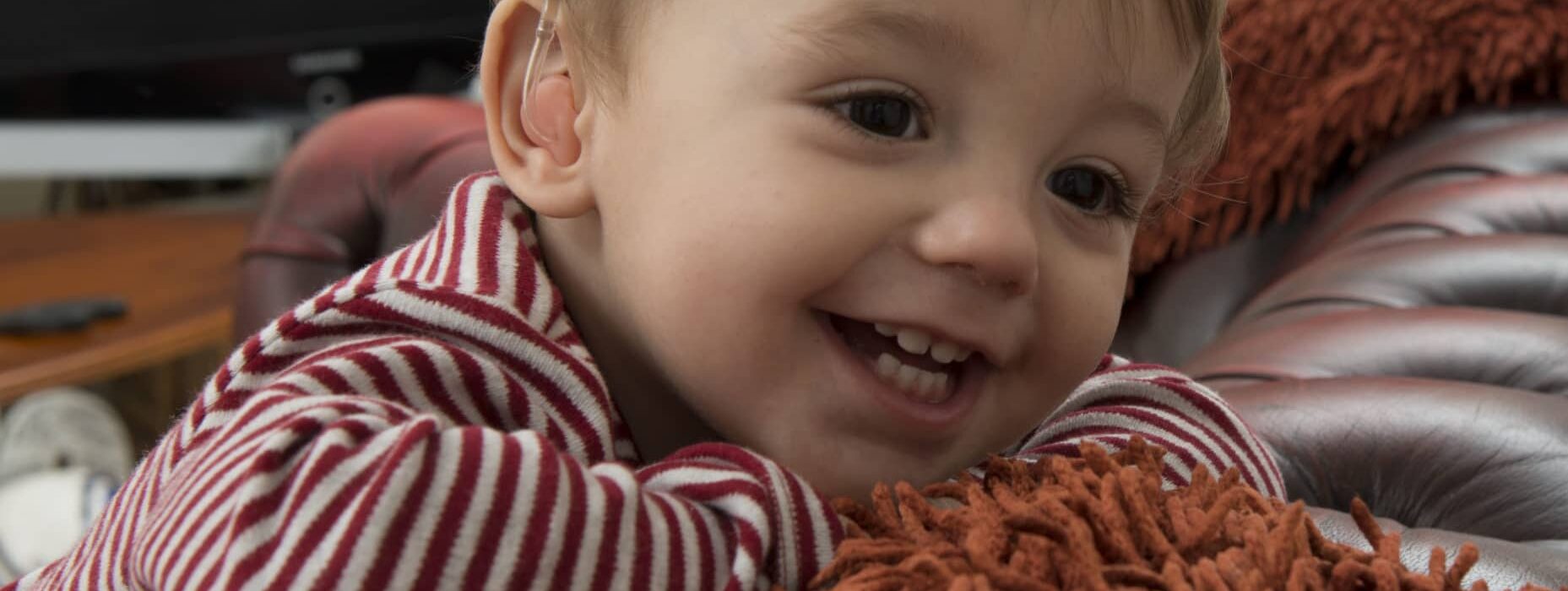
The Ears: Doorways to the brain
Historically, conversations about hearing loss have focused on the ear. With current knowledge of neuroplasticity and auditory deprivation, our counselling narratives should be based on the brain.
In June 2016, the Paediatric Audiology Service (PAS) at St Thomas’ Hospital in London hosted Professor Carol Flexer for a day-long seminar and workshop called ‘Helping Parents Facilitate their Child’s Auditory Brain Development’. Professor Flexer is a very well-known Educational Audiologist and Auditory-Verbal Therapist, who worked for 25 years as a Distinguished Professor of Audiology at the University of Akron. She is an author of over 155 publications and has also co-edited and authored 14 books.
‘Helping Parents Facilitate their Child’s Auditory Brain Development’ focused on the importance of counselling parents who want their newly diagnosed children who are hearing impaired to develop spoken language. Professor Flexer introduced us to her analogy of hearing loss being described as a “doorway issue” emphasizing the fact that hearing occurs in the brain, not in the ear. The ear is the doorway to the brain for sound/auditory information. She emphasized that the only purpose of technology, such as hearing aids and cochlear implants, is to get auditory information through the doorway, to the brain. Once the ear/doorway is breached by technology, the child’s spoken language environment needs to be enriched through family-centered play, singing and reading aloud. These subjects typically have not been brought up in the past by audiologists during audiological appointments, rather, leaving this part of the conversation to Teachers of the Deaf and Speech and Language Therapists.
The PAS embarked on a pilot study to implement this learning into our clinical practice. In collaboration with Professor Flexer and Phonak UK, we formed a multidisciplinary steering group to: develop information booklets for parents and professionals; conduct parent focus groups; administer questionnaires for families and professionals; and provide internal training for audiologists and Teachers of the Deaf.
Overwhelmingly parents told us that they found the description of hearing loss as a ‘doorway issue’ very useful and easy to understand. Parents said they would have wanted information explained in this way when their child was first diagnosed with hearing loss.
Based on the positive feedback from our parents, we implemented ‘doorway conversations’ into our clinical practice. In September 2016, senior audiologists began using the doorway and brain concept when discussing hearing loss with newly diagnosed infants referred from the Newborn Hearing Screening Program.
We presented the findings from this pilot study at the British Academy of Audiology (BAA) conference in November 2016 alongside Professor Flexer. The response from our professional peers following the BAA presentation has been overwhelmingly favorable, with many sites across the country wanting to implement the doorway conversation into their own practice.
In addition, this work was very well received when Professor Flexer presented it at the American Academy of Audiology Conference, the largest audiology conference in the world, in April 2017. We have future plans to prepare an e-learning module and share our developed resources with other pediatric audiology services.
To learn more about Professor Carol Flexer’s message on how hearing loss is a ‘doorway issue’, watch these two short videos.
